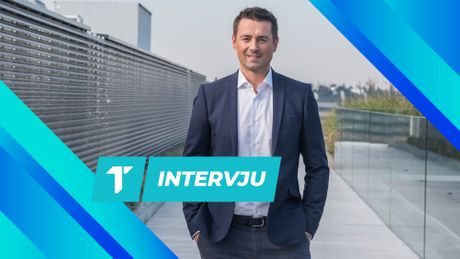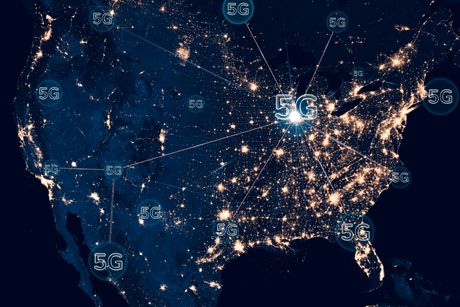EXCLUSIVE PPF executive on why Telenor became Yettel, what awaits customers in Serbia

Companies change their brand for two reasons - either they have to or they want to. In our case, it is a combination of these two reasons, says Marek Slacik, executive director for technology, media and telecommunications for the region of Central and Eastern Europe in PPF Telekom Group.
As he points out in an exclusive interview for our portal, a new chapter in Serbia, Hungary and Bulgaria is starting for them as a company.
We spoke about what customers can expect, how rebranding affects business, but also about further investment plans.
And when it comes specifically to users in Serbia, Slacik says that they want quality, fast and reliable services and that they are ready to pay for that quality.
PPF Telecom Group is a leading provider of telecommunication services in the CEE region, active in five markets (Bulgaria, Czech Republic, Hungary, Serbia, and Slovakia) providing mobile, fixed-line, data, and internet television services.
It has 18.3 million mobile customers, 12,500 employees and EUR 1.6bn EBITDA.
- How was the brand made, and what does it stand for?
- We spent a lot of time with detailed surveys and in-depth interviews. We analysed a huge amount of information and looked for ways to build a new brand to satisfy our customers and also be unique and differentiate ourselves from the competition.
Since we’re all being overwhelmed in some way by the amount of information we get from the Internet, it’s very important to estimate the potential in a brand to engage and act credibly.
By the way, you wouldn’t believe how difficult it is to find a name that has no meaning, doesn’t have any negative associations, has not been registered and is applicable in all the countries where you do business.
- It’s not so unusual these days for companies to change their name. How do you explain this trend? Do you think we will see more cases this year?
- Companies rebrand in two situations – they either have to or they want to. With us, it was a combination of both – first, the license to use the Telenor brand was limited, and second, Telenor was a successful global brand which was very strong on our markets.
However, we saw that the brand was also losing some of its potential, and so we created a new, modern brand tailored to the region and the social issues currently important to our customers, such as balanced life or waste and recycling.
A strong brand is a prerequisite for the success of the business, and this is doubly true of a highly competitive and rapidly changing environment such as the telecommunications market. The value a successful brand can bring to your company is real and measurable. I think we can only expect companies to continue to pay close attention to their brand strategies.
You had a difficult time after the owner of the PPF Group died last year. You also sold Telenor in Montenegro at the end of 2021, while you decided to introduce a new brand in Serbia, Bulgaria and Hungary. How do those changes affect the company and its business?
- You had a difficult time after the owner of the PPF Group died last year. You also sold Telenor in Montenegro at the end of 2021, while you decided to introduce a new brand in Serbia, Bulgaria and Hungary. How do those changes affect the company and its business?
- PPF Group is an established, successful investment group with experienced management. The departure of the company’s founder deeply affected us all, but nothing changed our business strategy.

PPF continues to develop its assets and is constantly looking for interesting opportunities for further growth, telecommunications being one of PPF’s key areas. The sale of Telenor Montenegro, which accounted for only one percent of our telecommunications division’s EBITDA, allowed us to focus fully on markets where we see greater potential, and Serbia is definitely one of them.
That’s why we decided to rebrand, as an investment in the future. We’re planning to stay in this region and persist with telecommunications.
- Customers relate to a logo, to a name. Were you concerned about how they would react? How does a company like yours ensure that everything goes smoothly in a process like rebranding? Are there any mechanisms to secure it?
- Unless companies have a serious reason to rebrand, they don’t do it. It isn’t a small undertaking, and every rebranding carries significant risk. You leave something you know and enter waters where you don’t know how customers will react. That’s why you do surveys, try to approach it methodically, but it still may not turn out well.
I think the best way to make sure your new brand works is to get your internal people passionate about it. On this note, we succeeded. There is a well-known saying in marketing that you can’t sell it outside if you can’t sell it inside. And it still applies. You have to believe in what you’re doing.
- Customers relate to a logo, to a name. Were you concerned about how they would react? How does a company like yours ensure that everything goes smoothly in a process like rebranding? Are there any mechanisms to secure it?
- Above all, it’s important for us to maintain the loyalty and trust of our existing customers and continue to provide top-level services and operate the most technologically advanced network. Both have formed the basis of the company for decades, which is why Yettel is now number one on the Serbian market.
In addition to the new brand’s launch, we’ve significantly expanded our portfolio and started offering fixed network services under the Hipernet logo, including the Hiper TV service, which takes consumption of television content to a completely different level. We’ve introduced a loyalty programme and launched the Yettel App, which you can use for discount promotions throughout Serbia.
We also want to strengthen the values which the new brand stands on, for example sustainability and an emphasis on recycling used equipment or materials.

What lies ahead now is the challenge of bringing 5G services to the market in Serbia as soon as it will be possible. We have a lot of plans and a lot of processes underway, but we don’t want to reveal any surprises.
- Customers relate to a logo, to a name. Were you concerned about how they would react? How does a company like yours ensure that everything goes smoothly in a process like rebranding? Are there any mechanisms to secure it?
- Right now, we’re focusing on raising our range of home and TV optical connections to the highest quality, and we’re continuing to develop the Yettel App by adding new features and providing the best possible user-friendliness.
We’re also expecting 5G networks and services to launch, but we’re keeping our plans for customers in that regard to ourselves for now.
- Before rebranding, Telenor opened a new chapter with Hipernet, entering the fixed and television markets. Any plans for this?
- We launched Hipernet before the rebranding in the beta version, which allowed us to build on customer feedback before the definite start. Now we’re focusing on quality.
We want to operate Internet television with the most modern customer interface and a 21st Century Hipernet which is reliable, customer-friendly, simple to use and fast to get. Entering the fixed internet and television market is a major change in our business model and an opportunity to further development of our services.
- What is your impression of Serbian customers, are they digitally sophisticated, do they follow the latest trends?
- Customers are the same in Serbia as anywhere else. They want quality, fast and reliable services, and are willing to pay for them.
Once you offer a solution that works, helps in some way, or makes life more pleasant, customers easily take it up. For example, our new Yettel App is already being used by almost 1.3 million people, which is close to half of our customer base.
Video: Free internet in an elementary school in Smederevska Palanka
(Telegraf Biznis)
Video: Zmija poskok pojavila se u Užicu
Telegraf.rs zadržava sva prava nad sadržajem. Za preuzimanje sadržaja pogledajte uputstva na stranici Uslovi korišćenja.

